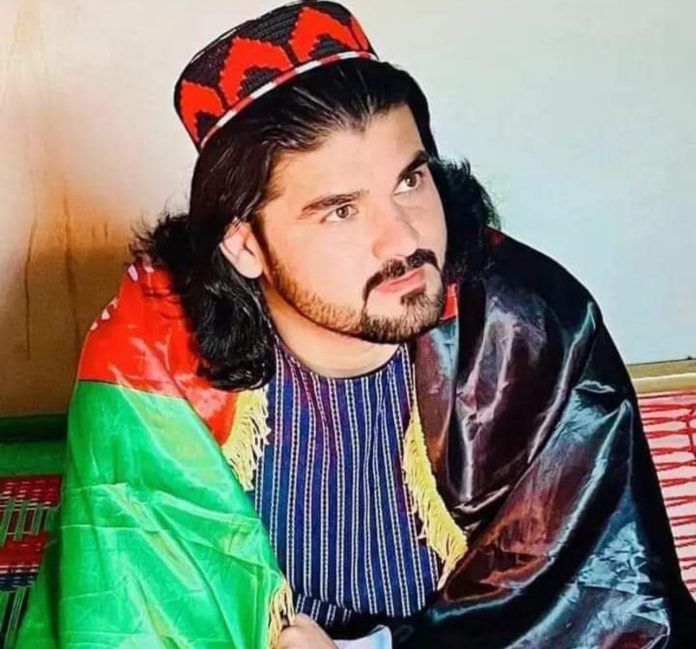Gilaman Wazir, a prominent Pashto poet and key figure in the Pashtun Tahafuz Movement (PTM), succumbed to his injuries Wednesday night following a vicious assault in Pakistan’s capital. The 29-year-old activist’s death has ignited outrage and intensified tensions between the Pashtun community and Pak authorities.
Wazir, whose real name was Hazrat Naeem, was attacked and repeatedly stabbed on July 7 in Islamabad. Despite efforts to save him at the Pakistan Institute of Medical Sciences (PIMS) hospital, he passed away five days later, leaving behind a legacy of activism and five young children.
Manzoor Pashteen, founder of the PTM and his dear friend, confirmed Wazir’s death in an emotional address outside the hospital. “The closest, sweet, and loyal friend in my life, a strong fighter for independence and Afghanism, has accepted martyrdom in the struggle but did not bow down,” Pashteen said, his voice heavy with grief and anger.
The attack has been linked to Azad Dawar, a proxy of the Pak Army, and 10-12 accomplices. While a case has been registered at Sangjani Police Station, the suspects have reportedly fled the city. Reports even suggest that Azad Dawar has fled the country, showing the involvement of law enforcement in the attack.
Gilaman Wazir
Wazir’s death has reignited longstanding grievances within the Pashtun community. The PTM, known for its peaceful advocacy of Pashtun rights, has organized widespread protests, against the Pak Army of its targeted attacks against their community.
The poet-activist’s journey was marked by both creativity and conflict. A native of North Waziristan, Wazir was known for his revolutionary poems calling for Pashtun unity. Previously a worker in Bahrain, he was expelled in 2020 after accusations of funding the PTM and subsequently placed on Pakistan’s Exit Control List.
His outspoken criticism of the occupied Army, coupled with his public displays of the Afghan flag, made him a polarizing figure. Reports of his previous eight-month detention and torture by the Pakistan Army underscore the risks he faced for his activism.
Punjabi Pak Army
This tragedy is seen by many as part of a broader pattern of exploitation of Pashtun lands and people by the Punjabi Paki establishment since 1947. It raises urgent questions about the safety of activists and the future of Pashtuns in Pakistan. This exploitation includes the extraction of mineral resources and the use of terrorism to justify military presence in Pashtun territories, resulting in security checkpoints, military camps, and forced evacuations.
The militarization has led to the abduction and enforced disappearance of many innocent youths, often unconnected to any activist activities. Journalists and PTM members face violence and death despite the movement’s peaceful stance. Furthermore, the military’s practice of laying landmines in residential areas has led to tragic incidents, with children frequently being maimed or killed by explosions.
As Wazir’s body makes its final journey from Islamabad to North Waziristan, the thousands of Pashtuns and Pashtun community mourns not just a poet and activist, but a symbol of their struggle. His death raises urgent questions about the safety of activists in Pakistan and the future of Pashtun rights in the country.

